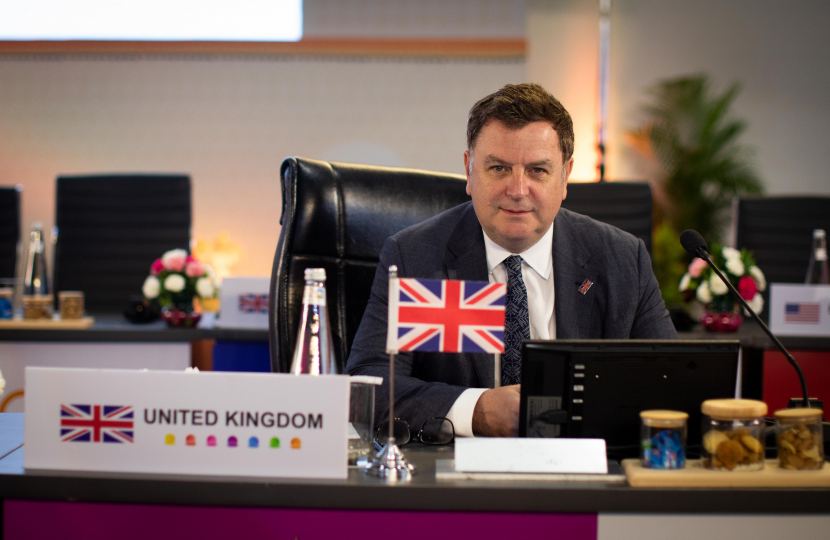
The need to protect the environment for our children and future generations was one of the reasons I got into politics. Before I was elected to parliament, I spent two years going into local schools with my 'One Tonne Green Challenge' - an initiative to engage and educate our young people on the need to recycle more and reduce our carbon footprint.
After I became an MP, I took this environmental mission to Westminster, helping to steer a major energy bill through the House of Commons in 2013 which has successfully reduced UK carbon emissions in the decade since then. In 2020 I was one of seven MPs who helped set up Climate Assembly UK.
In 2021 I led a major parliamentary inquiry into the decarbonisation of the UK economy and green finance. Our report urged the Government to take action in a number of key areas, including the need for greater transparency around financial products so investors know whether their decisions are compatible with their environmental values. Later that year I attended COP26 in Glasgow where I spoke with politicians from around the world – including from countries resistant to tackling climate change – about the need to transition away from fossil fuels.
This year I represented British interests at the G7 in Japan and the G20 in India where I primarily worked on employment issues. But I also spoke about how we must ensure that global economic growth is compatible with our Net Zero mission.
I am very proud that the UK has helped to lead the global effort on tackling climate change. In 2022 the World Economic Forum ranked the UK as fourth on its Green Future Index for countries making the most progress in preparing for a low carbon future. But action from the UK and other progressive countries will not be enough unless we take the rest of the world with us. I was therefore very encouraged when the COP28 climate summit in Dubai last week achieved something no previous summit had managed – to secure an agreement from all 190 nations to transition away from fossil fuels, which are responsible for nearly 90% of global carbon dioxide emissions.
Agreement is not the same as action, and I appreciate the dangers of less progressive countries dragging their heels. But it does feel like a watershed moment, and I am optimistic that we will see a more rapid transition away from fossil fuels and towards renewable energy as a result. The UK has shown that this is possible. In 2010 around 10% of our electricity was generated through renewable energy. Now more it is more than 40%. China – the world’s largest greenhouse emitter – is also accelerating its shift towards renewable energy and is on course to hit wind and solar power targets five years early (in 2025 rather than 2030). There is a huge amount more that needs to be done but we are heading in the right direction.
More from Mel at www.melstridemp.com or follow him on X (Twitter) @MelJStride.
Photo: Mel representing the UK at the G20 in India.

